 Tìm kiếm
Tìm kiếm
Phần thứ sáu Bộ luật Dân sự 2005: Quyền sở hữu trí tuệ và chuyển giao công nghệ
| Số hiệu: | 33/2005/QH11 | Loại văn bản: | Luật |
| Nơi ban hành: | Quốc hội | Người ký: | Nguyễn Văn An |
| Ngày ban hành: | 14/06/2005 | Ngày hiệu lực: | 01/01/2006 |
| Ngày công báo: | 01/09/2005 | Số công báo: | Từ số 1 đến số 3 |
| Lĩnh vực: | Quyền dân sự | Tình trạng: |
Hết hiệu lực
01/01/2017 |
TÓM TẮT VĂN BẢN
Ngày 14/6/2005, Quốc hội đã thông qua Bộ luật Dân sự số 33/2005/QH11, gồm 36 chương và 777 điều, có hiệu lực kể từ ngày 01/01/2006, thay thế cho Bộ luật Dân sự ban hành năm 1995 và Pháp lệnh Hợp đồng kinh tế năm 1989.
Bộ luật quy định: người từ đủ 06 tuổi đến chưa đủ 18 tuổi khi xác lập, thực hiện giao dịch dân sự phải được người đại diện theo pháp luật đồng ý, trừ giao dịch nhằm phục vụ nhu cầu sinh hoạt hàng ngày phù hợp với lứa tuổi hoặc pháp luật có quy định khác.
Trong trường hợp người từ đủ 15 tuổi đến chưa đủ 18 tuổi có tài sản riêng bảo đảm thực hiện nghĩa vụ thì có thể tự mình xác lập, thực hiện giao dịch dân sự mà không cần phải có sự đồng ý của người đại diện theo pháp luật, trừ trường hợp pháp luật có quy định khác...
Bộ luật coi Giao dịch dân sự thông qua phương tiện điện tử dưới hình thức thông điệp dữ liệu được coi là giao dịch bằng văn bản...
Trong trường hợp tài sản của nhiều chủ sở hữu khác nhau được sáp nhập với nhau tạo thành vật không chia được và không thể xác định tài sản đem sáp nhập là vật chính hoặc vật phụ thì vật mới được tạo thành là tài sản thuộc sở hữu chung của các chủ sở hữu đó, nếu tài sản đem sáp nhập là vật chính và vật phụ thì vật mới được tạo thành thuộc chủ sở hữu vật chính, kể từ thời điểm vật mới được tạo thành, chủ sở hữu tài sản mới phải thanh toán cho chủ sở hữu vật phụ phần giá trị của vật phụ đó, nếu không có thoả thuận khác...
Đối với di sản thừa kế, khi phân chia di sản nếu có người thừa kế cùng hàng đã thành thai nhưng chưa sinh ra thì phải dành lại một phần di sản bằng phần mà người thừa kế khác được hưởng, để nếu người thừa kế đó còn sống khi sinh ra, được hưởng, nếu chết trước khi sinh ra thì những người thừa kế khác được hưởng.
Những người thừa kế có quyền yêu cầu phân chia di sản bằng hiện vật, nếu không thể chia đều bằng hiện vật thì những người thừa kế có thể thoả thuận về việc định giá hiện vật và thoả thuận về người nhận hiện vật, nếu không thoả thuận được thì hiện vật được bán để chia...
Về quyền sử dụng đất, khi thời hạn cho thuê quyền sử dụng đất đang còn, bên cho thuê vẫn có quyền chuyển nhượng quyền sử dụng đất cho người khác nếu được cơ quan nhà nước có thẩm quyền cho phép, nhưng phải báo cho bên thuê biết để bên thuê thực hiện nghĩa vụ với bên nhận chuyển nhượng quyền sử dụng đất...
Một điểm mới của Bộ luật là quy định cá nhân có quyền xác định lại giới tính. Việc xác định lại giới tính được thực hiện trong trường hợp giới tính của người đó bị khuyết tật bẩm sinh hoặc chưa định hình chính xác mà cần có sự can thiệp của y học...
Bộ luật Dân sự 2005 thay thế Bộ luật Dân sự 1995, nhưng hiện đã hết hiệu lực và bị thay thế cho Bộ luật Dân sự 2015.
Văn bản tiếng việt
Văn bản tiếng anh
INTELLECTUAL PROPERTY RIGHTS AND TECHNOLOGY TRANSFER
1. A person who has created a literary, artistic or scientific work (hereinafter referred collectively to as works) is the author of such work.
In cases where two or more persons jointly create a work, such persons are co-authors.
2. Persons who have created derivative works from other persons' works, including works translated from one language into another, recreated, transformed, adapted, compiled, annotated or selected works, are authors of such derivative works.
Article 737.- Objects of copyright
Objects of copyright shall include all works created in the literary, artistic or scientific field and expressed in any form and by any means, regardless of their contents and value, and without depending on any procedures.
Article 738.- Contents of copyright
1. Copyright shall include personal rights and property rights to works.
2. Personal rights in copyright shall include the rights:
a/ To name the works;
b/ To put real names or pen names in the works; to have real names or pen names mentioned when the works are publicized, used;
c/ To publicize or to permit other persons to publicize the works;
d/ To protect the integrity of the works, not to permit other persons to amend, garble or distort the works.
3. The property rights in copyright shall include the rights:
a/ To duplicate the works;
b/ To permit the creation of derivative works;
c/ To distribute, import the originals and copies of the works;
d/ To disseminate the works to the public;
e/ To lease the originals or copies of computer programs.
Article 739.- Time at which copyright arises and the effect of copyright
1. Copyright shall arise from the date a work is created and expressed in a given material form.
2. Personal rights in copyright shall exist indefinitely, except the right to publicize or to permit other persons to publicize the works as provided for by the law on intellectual property.
3. Property rights in copyright shall exist within the time limit specified by the law on intellectual property.
Article 740.- Owners of copyright
1. Personal rights belong to the authors.
2. In cases where works are created not on the basis of the performance of assigned tasks or job assignment contracts, the property rights shall belong to the authors.
3. In cases where works are created on the basis of the performance of assigned tasks or job assignment contracts, property rights shall belong to agencies or organizations which have assigned the tasks or the parties that have assigned the contractual jobs, unless otherwise agreed upon.
In cases where property rights do not belong to the authors, the authors shall have the right to receive remuneration or royalties to be paid by the property right owners in accordance with the law on intellectual property.
Article 741.- Division of rights of co-authors
In cases where a work is created by co-authors, in which each part created by each co-author can be separated for independent use, the provisions of Article 740 of this Code shall apply to each part of the work, which is used independently, unless otherwise agreed upon by the co-authors.
Article 742.- Transfer of copyright
1. Personal rights provided for at Points a, b and d, Clause 2, Article 738 of this Code cannot be transferred.
Personal rights specified at Point c, Clause 2, Article 738 of this Code can be transferred under the conditions set by the law on intellectual property.
2. Property rights can be transferred in whole or in part under contracts or be bequeathed, inherited.
Article 743.- Contracts for transfer of property rights in copyright
The transfer of part or whole of the property rights in copyright shall be effected on the contractual basis. The contracts for transfer of copyright must be made in writing.
Section 2. RIGHTS RELATED TO COPYRIGHT
Article 744.- Objects of copyright-related rights
Objects of copyright-related rights (hereinafter referred to as the related rights) shall include performances by performers; audio records, video records; broadcasts by broadcasting organizations and satellite signals carrying coded programs.
Article 745.- Owners and contents of the rights to performances
1. The rights to performances shall include personal rights of performers and property rights of investors for realization of the performances.
2. Personal rights of performers shall include the right to have their names mentioned in the performances or transmission of audio records, video records of the performances and the right to protect the integrity of the image of the performances.
3. Property rights of investors for realization of performances shall include the right to perform and to forbid other persons to perform the following acts:
a/ Audio recording, video recording the performances;
b/ Duplicating, distributing originals or copies of the audio records or video records of the performances;
c/ Broadcasting or transmitting in other ways the performances to the public.
Article 746.- Owners and contents of the rights to audio records, video records
1. The rights to audio records, video records shall belong to investors in the creation of such audio records or video records.
2. The rights to audio records, video records shall include the right to perform and to forbid other persons to perform the following acts:
a/ Duplicating in whole or part of the audio records, video records;
b/ Distributing, importing the originals or copies of the audio records, video records;
c/ Leasing the originals or copies of audio records, video records for commercial purposes.
Article 747.- Owners and contents of the rights to broadcasts
1. The rights to broadcasts shall belong to the broadcasting organi-zations.
2. The rights to broadcasts shall include the rights to perform or forbid other persons to perform the following acts:
a/ Recording, duplicating the records; broadcasting, re-broadcasting part or whole of a broadcast;
b/ Distributing the records or duplicates of the records of broadcasts.
Article 748.- Owners and contents of the rights to satellite signals carrying coded programs
1. The rights to satellite signals carrying coded programs shall belong to the persons who are the first to transmit the satellite signals carrying such coded programs.
2. The rights to satellite signals carrying coded programs shall include the rights to perform, to permit or forbid other persons to perform the following acts:
a/ Producing, assembling, modifying, importing, selling, leasing equipment or systems for decoding the coded satellite signals;
b/ Receiving, redistributing decoded signals when not so permitted by the holders of the rights to the coded satellite signals.
Article 749.- Transfer of related rights
1. Property rights in the related rights defined in Articles 745, 746, 747 and 748 of this Code can be transferred.
2. The transfer of related rights shall be made in writing under contracts.
INDUSTRIAL PROPERTY RIGHTS AND THE RIGHTS TO PLANT VARIETIES
Article 750.- Objects of industrial property rights and the rights to plant varieties
1. Objects of industrial property rights shall include inventions, industrial designs, semi-conductor integrated circuit layout designs, business secrets, trademarks, trade names, geographical indications.
2. Objects of the rights to plant varieties are propagating materials and plant varieties.
Article 751.- Contents of industrial property rights and the rights to plant varieties
1. Industrial property rights to inventions, industrial designs, semi-conductor integrated circuit layout designs, and the rights to plant varieties shall include the personal rights and the property rights, which are provided for as follows:
a/ Personal rights to inventions, industrial designs, semi-conductor integrated circuit layout designs, plant varieties shall belong to the persons who have directly created their inventions, industrial designs, semi-conductor integrated circuit layout designs or plant varieties with their creative labor, including the right to be named as authors in the protection titles issued by the State, in documents publicizing or introducing such inventions, industrial designs, semi-conductor integrated circuit layout designs or plant varieties;
b/ Property rights to inventions, industrial designs, semi-conductor integrated circuit layout designs or plant varieties shall belong to owners of such objects, including the right to use, to permit or forbid other persons to use such inventions, industrial designs, semi-conductor integrated circuit layout designs or plant varieties.
2. Industrial property rights to business secrets shall belong to the organizations or individuals that obtain the information to be lawfully formed into business secrets and keep confidential such information, including:
a/ Exploiting, using business secrets;
b/ Permitting or forbidding other persons to approach, use or disclose the business secrets.
3. Industrial property rights to trademarks or trade names shall belong to the owners of such trademarks or trade names, including:
a/ Using trademarks, trade names in business;
b/ Permitting or forbidding other persons to use trademarks which are so coincident or similar to the extent of causing confusion with their own trademarks; forbidding other persons to use trade names which cause confusion with their own business activities.
4. The rights to own geographical indications shall belong to the State. The rights to use geographical indications aiming to indicate origins, sources of products shall belong to organizations or individuals that satisfy the conditions set by the law on intellectual property.
5. The rights to fight unfair competition shall belong to organizations or individuals that conduct business activities under competitive conditions.
Article 752.- Bases for establishing industrial property rights and the rights to plant varieties
1. Industrial property rights to inventions, industrial designs, semi-conductor integrated circuit layout designs, trademarks, geographical indications and the rights to plant varieties shall be established on the basis of decisions of competent state agencies when carrying out the registration of such objects in accordance with the provisions of law on intellectual property.
2. Industrial property rights to trade names shall be established on the basis of lawful use of such trade names.
3. Industrial property rights to business secrets shall be established on the basis of acquiring the information to be lawfully formed into business secrets and keeping confidential such information.
4. The rights to fight unfair competition shall be established on the basis of competitive activities in business.
Article 753.- Transfer of industrial property rights and the rights to plant varieties
1. Industrial property rights to inventions, industrial designs, semi-conductor integrated circuit layout designs, business secrets, trademarks, and the rights to plant varieties can be transferred in whole or in part under contracts or be bequeathed or inherited.
2. The rights to trade names can only be transferred together with the transfer of the entire business establishments and business activities under such trade names.
3. The rights to geographical indications must not be transferred.
4. For contracts on transfer of industrial property rights arising on the basis of registration, only when such contracts are registered shall they have the legal validity for a third party.
Article 754.- Technology transfer rights
The following organizations and individuals shall be entitled to transfer the rights to use, the rights to own technologies:
1. Technology owners;
2. Organizations or individuals that are permitted by technology owners to transfer the right to use and the right to own the technology.
Article 755.- Objects of technology transfer
1. The objects of technology transfer shall include technical know-hows; technical knowledge of technology in the form of technological schemes, technical solutions, formulas, technical para-meters, technical diagrams or drawings, computer programs, data information on the transferred technologies; solutions to rationalization of production, technological renewal, exclusive business licensing and other objects specified by the law on technology transfer.
2. In cases where technology is an object entitled to intellectual property right protection, the transfer of such technology must be carried out simultanously with the transfer of intellectual property rights in accordance with the provisions of law on intellectual property.
Article 756.- Technologies which must not be transferred
1. Technologies which do not meet the provisions of law on labor safety, labor hygiene, assurance of people's health and environmental protection.
2. Other cases specified by law.
Article 757.- Contracts for technology transfer
1. Technology transfer shall be carried out on the basis of written contracts.
2. Technology transfer contracts must be registered at competent state agencies, if so provided for by law.
3. The amendment, supplementation, extension, cancellation of technology transfer contracts must be made in written contracts; for technology transfer contracts defined in Clause 2 of this Article, the amendment, supplementation, extension, cancellation thereof must be registered at competent state agencies.
Cập nhật
Bài viết liên quan
Tài sản chung của vợ chồng được chia khi nào mới nhất 2025?
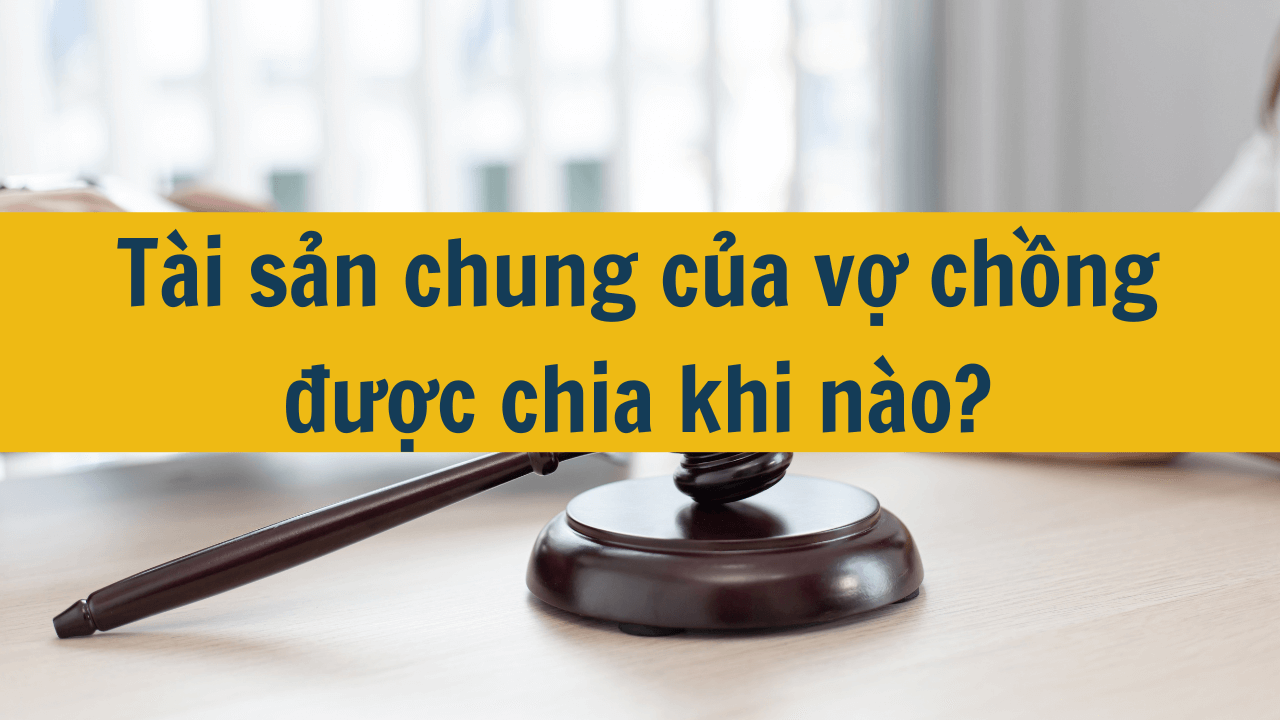
Tài sản chung của vợ chồng được chia khi nào mới nhất 2025?
Tài sản chung của vợ chồng được chia khi nào? Đây là câu hỏi phổ biến trong các vụ việc ly hôn hoặc tranh chấp tài sản. Việc xác định thời điểm và cách thức chia tài sản chung không chỉ dựa trên thỏa thuận giữa các bên mà còn phải tuân thủ quy định pháp luật. Trong bài viết này, chúng ta sẽ cùng tìm hiểu những trường hợp cụ thể khi tài sản chung của vợ chồng được chia và nguyên tắc pháp lý áp dụng. 31/12/2024Căn cứ xác lập tài sản chung của vợ chồng mới nhất 2025
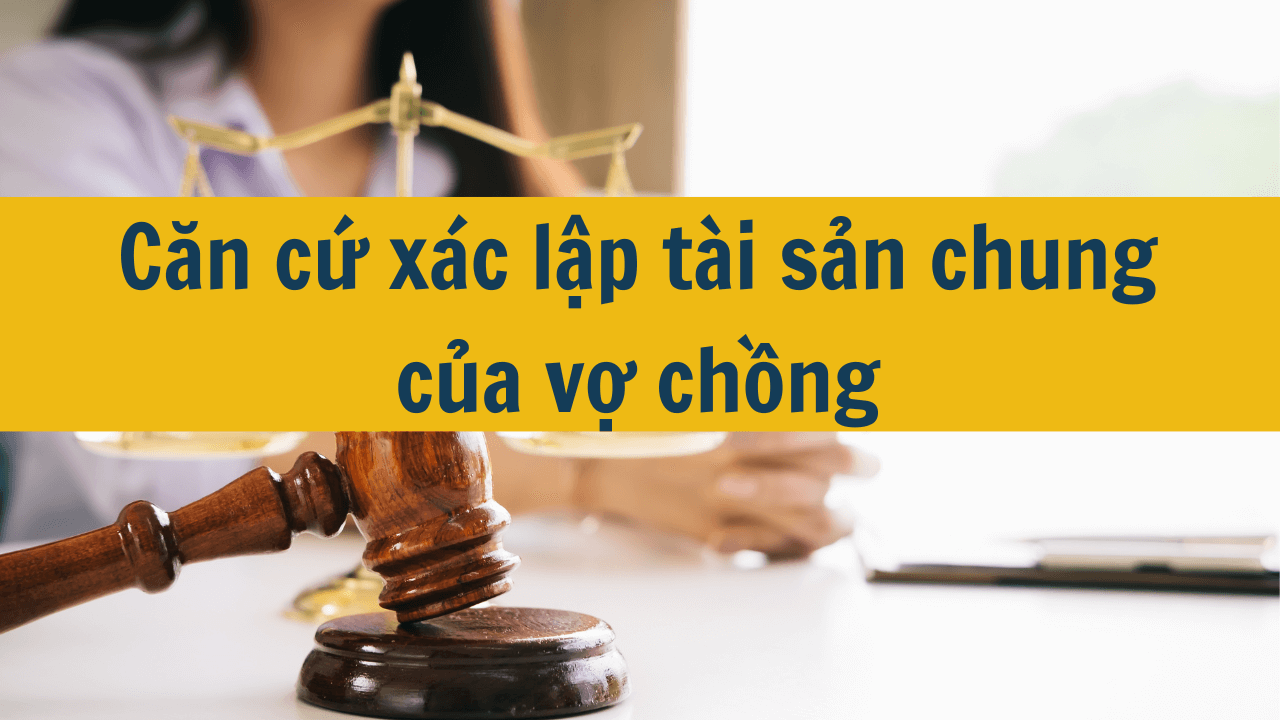
Căn cứ xác lập tài sản chung của vợ chồng mới nhất 2025
Tài sản chung của vợ chồng là vấn đề pháp lý quan trọng, ảnh hưởng trực tiếp đến quyền lợi và nghĩa vụ của cả hai bên trong hôn nhân. Vậy pháp luật quy định như thế nào về căn cứ xác lập tài sản chung? Bài viết này sẽ cung cấp thông tin chi tiết, rõ ràng và chuẩn pháp lý, giúp bạn hiểu rõ hơn về quyền sở hữu tài sản trong hôn nhân. 31/12/2024Trên Sổ đỏ có ghi tài sản chung, riêng vợ chồng không mới nhất 2025?
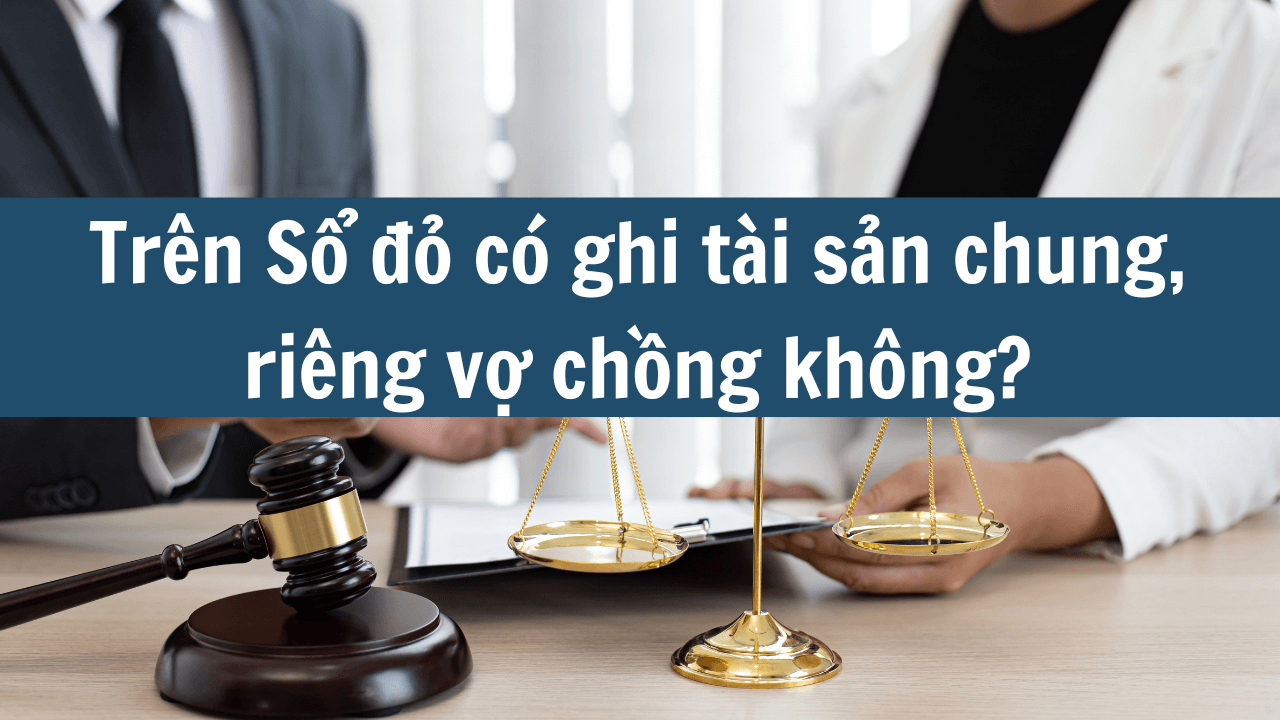
Trên Sổ đỏ có ghi tài sản chung, riêng vợ chồng không mới nhất 2025?
Sổ đỏ là giấy tờ pháp lý quan trọng xác định quyền sử dụng đất và quyền sở hữu tài sản gắn liền với đất. Tuy nhiên, nhiều người vẫn thắc mắc liệu trên Sổ đỏ có thể ghi rõ tài sản chung hay riêng của vợ chồng hay không. Bài viết này sẽ giải đáp chi tiết quy định pháp luật hiện hành về vấn đề này, giúp bạn hiểu rõ quyền lợi và trách nhiệm của mình. 31/12/2024Việc chiếm hữu, sử dụng, định đoạt tài chung của vợ chồng được quy định như thế nào mới nhất 2025?
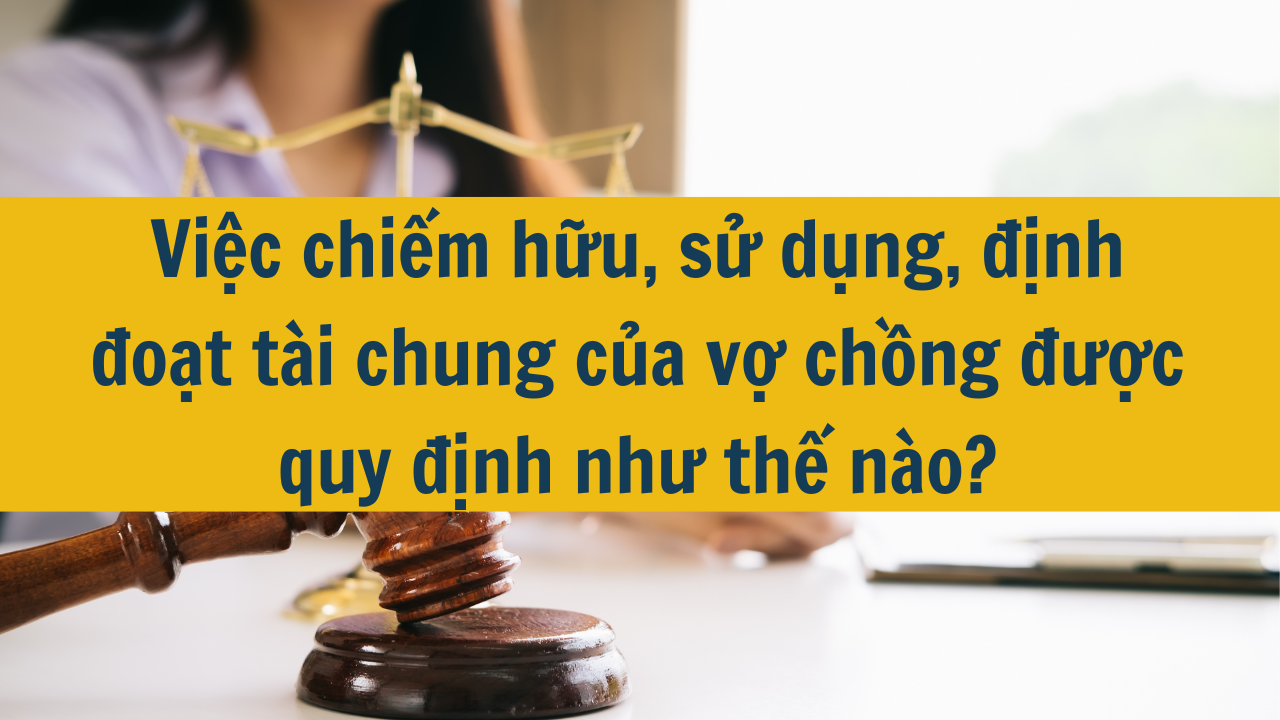
Việc chiếm hữu, sử dụng, định đoạt tài chung của vợ chồng được quy định như thế nào mới nhất 2025?
Tài sản chung của vợ chồng luôn là vấn đề pháp lý quan trọng trong hôn nhân và gia đình. Việc chiếm hữu, sử dụng, định đoạt tài sản chung không chỉ ảnh hưởng đến quyền lợi của mỗi bên mà còn đảm bảo tính minh bạch và công bằng trong mối quan hệ hôn nhân. Bài viết này sẽ phân tích chi tiết các quy định pháp luật về vấn đề này theo Luật Hôn nhân và Gia đình hiện hành. 31/12/2024Việc đăng ký quyền sở hữu, quyền sử dụng đối với tài sản chung của vợ chồng được quy định như thế nào mới nhất 2025?
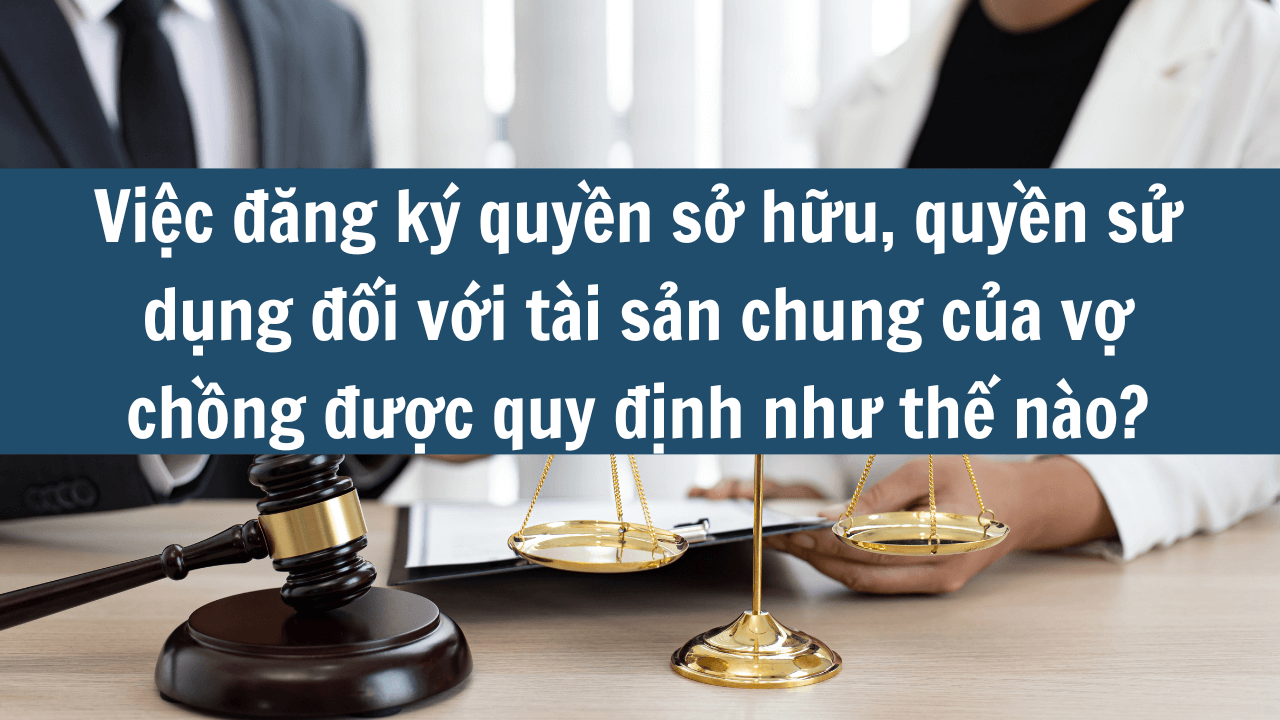
Việc đăng ký quyền sở hữu, quyền sử dụng đối với tài sản chung của vợ chồng được quy định như thế nào mới nhất 2025?
Việc đăng ký quyền sở hữu, quyền sử dụng đối với tài sản chung của vợ chồng là vấn đề pháp lý quan trọng, đảm bảo quyền lợi hợp pháp cho cả hai bên trong hôn nhân. Theo quy định pháp luật Việt Nam, quá trình này không chỉ bảo vệ quyền tài sản mà còn giảm thiểu tranh chấp về sau. Bài viết này sẽ phân tích chi tiết các quy định pháp luật hiện hành liên quan đến vấn đề này 31/12/2024Chế độ tài sản của vợ chồng phải tuân theo nguyên tắc nào mới nhất 2025?
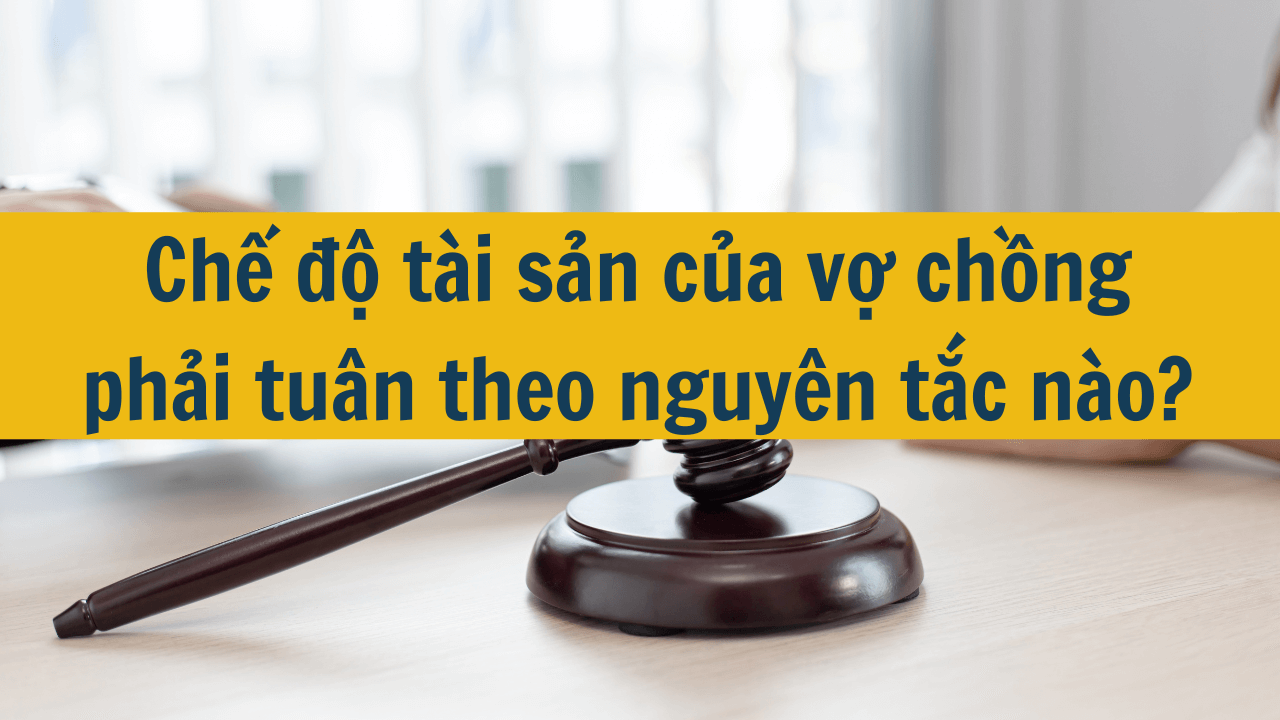
Chế độ tài sản của vợ chồng phải tuân theo nguyên tắc nào mới nhất 2025?
Chế độ tài sản của vợ chồng là nền tảng quan trọng để đảm bảo quyền và nghĩa vụ của mỗi bên trong hôn nhân. Vậy, những nguyên tắc pháp lý nào chi phối chế độ tài sản này? Bài viết sẽ làm rõ các quy định pháp luật hiện hành, giúp bạn hiểu rõ quyền lợi và trách nhiệm của mình trong quan hệ hôn nhân. 31/12/2024Những khoản nợ nào được chi trả bằng tài sản chung của vợ chồng mới nhất 2025?
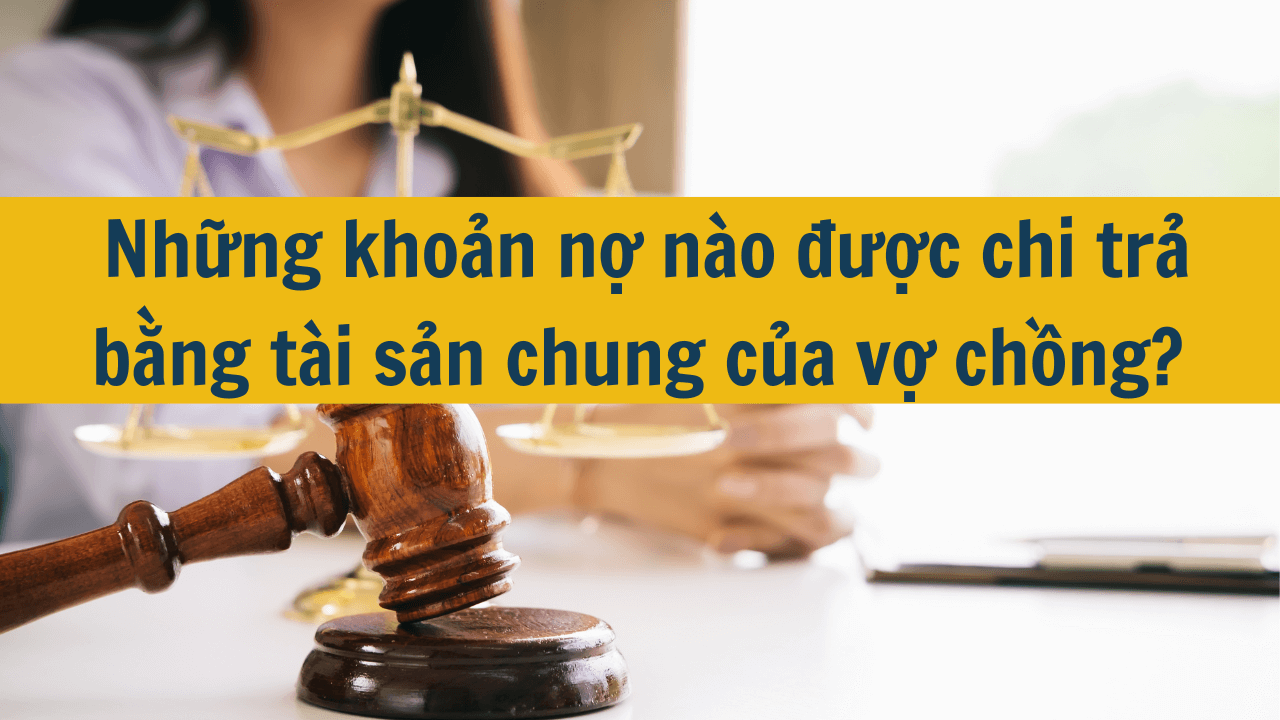
Những khoản nợ nào được chi trả bằng tài sản chung của vợ chồng mới nhất 2025?
Trong cuộc sống hôn nhân, vấn đề nợ chung và tài sản chung của vợ chồng luôn là chủ đề được quan tâm đặc biệt. Vậy, những khoản nợ nào sẽ được chi trả bằng tài sản chung? Cùng tìm hiểu rõ hơn qua bài viết dưới đây để hiểu đúng về quyền và nghĩa vụ của vợ chồng đối với các khoản nợ phát sinh trong thời kỳ hôn nhân! 31/12/2024Tài sản chung của vợ chồng bao gồm những tài sản nào mới nhất 2025?
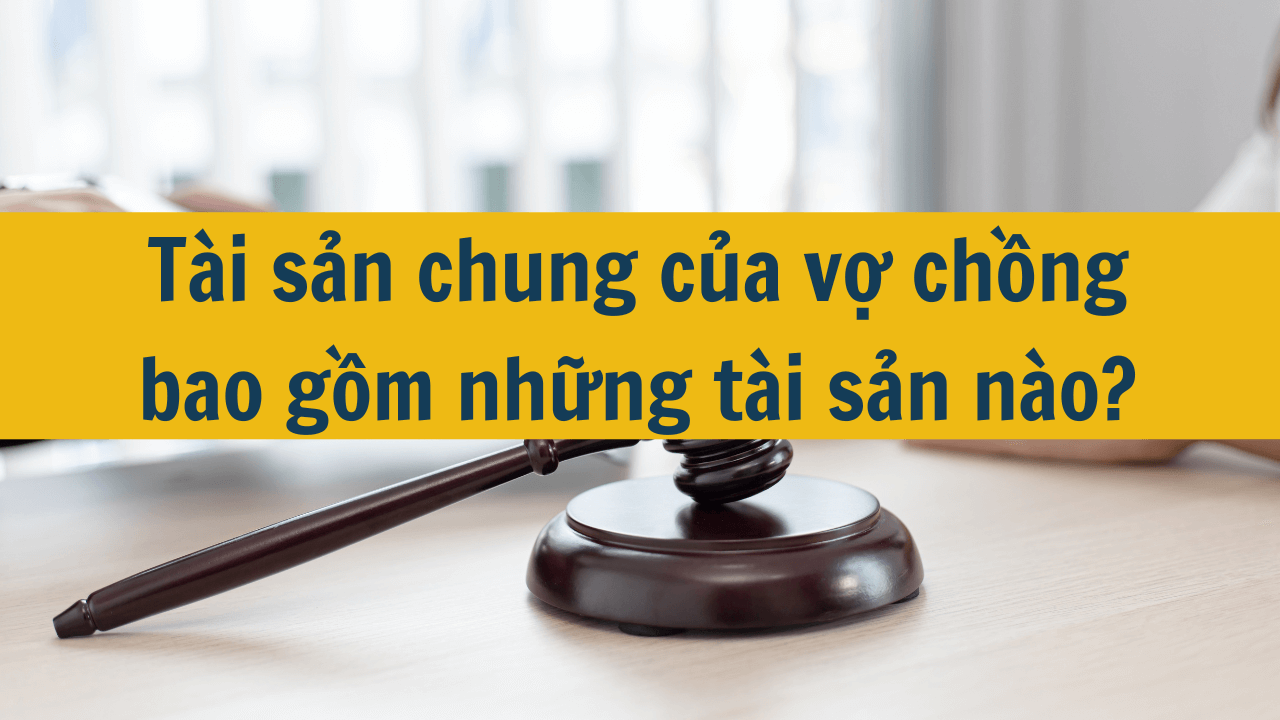
Tài sản chung của vợ chồng bao gồm những tài sản nào mới nhất 2025?
Tài sản chung của vợ chồng bao gồm những tài sản nào? Đây là câu hỏi phổ biến khi giải quyết các vấn đề pháp lý về hôn nhân và gia đình. Việc hiểu rõ tài sản nào được xem là tài sản chung giúp bảo vệ quyền lợi của cả hai bên trong quá trình chung sống hoặc khi xảy ra tranh chấp. Hãy cùng tìm hiểu chi tiết quy định pháp luật hiện hành về vấn đề này trong bài viết dưới đây! 31/12/2024Những trường hợp chia tài sản chung trong thời kỳ hôn nhân bị vô hiệu mới nhất 2025
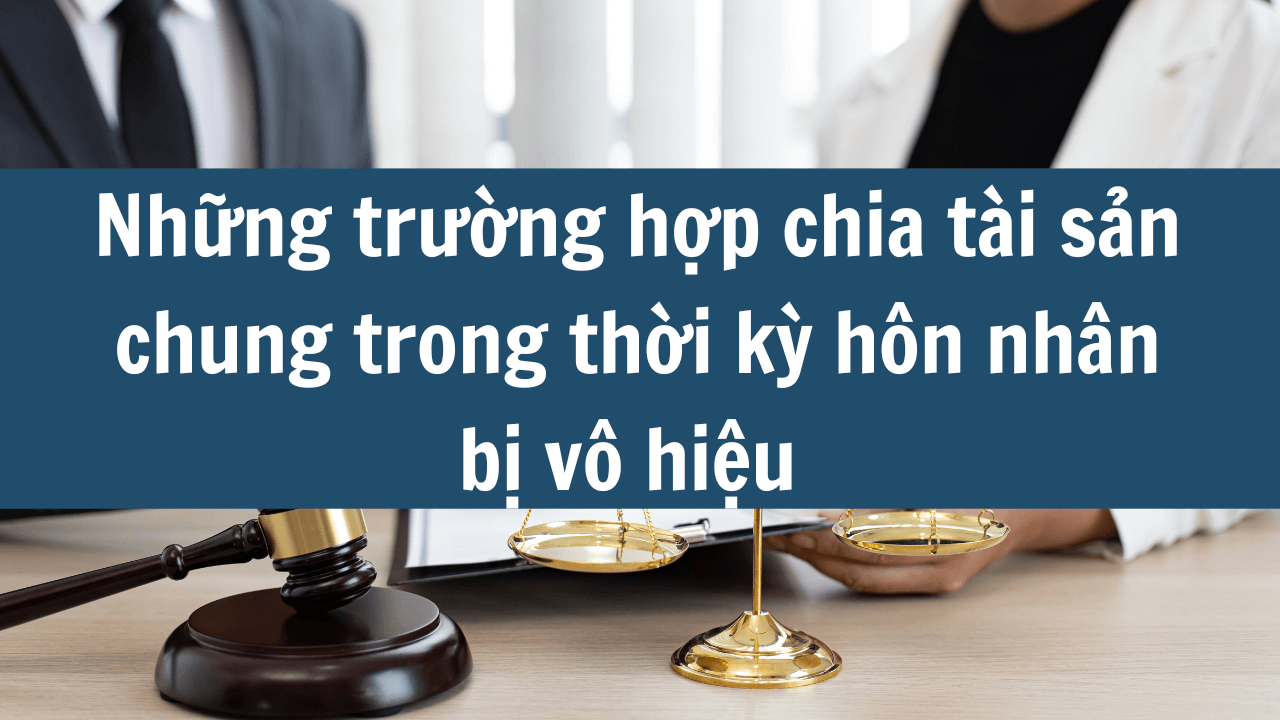
Những trường hợp chia tài sản chung trong thời kỳ hôn nhân bị vô hiệu mới nhất 2025
Việc chia tài sản chung trong thời kỳ hôn nhân là vấn đề pháp lý nhạy cảm, đòi hỏi tuân thủ chặt chẽ các quy định pháp luật. Tuy nhiên, không phải mọi thỏa thuận chia tài sản đều hợp pháp. Bài viết này sẽ giúp bạn hiểu rõ các trường hợp chia tài sản chung bị vô hiệu, từ đó tránh những rủi ro pháp lý không đáng có. 31/12/2024Tài sản chung của vợ chồng là gì? Có được chia tài sản chung của vợ chồng trong thời kì hôn nhân hay không mới nhất 2025?
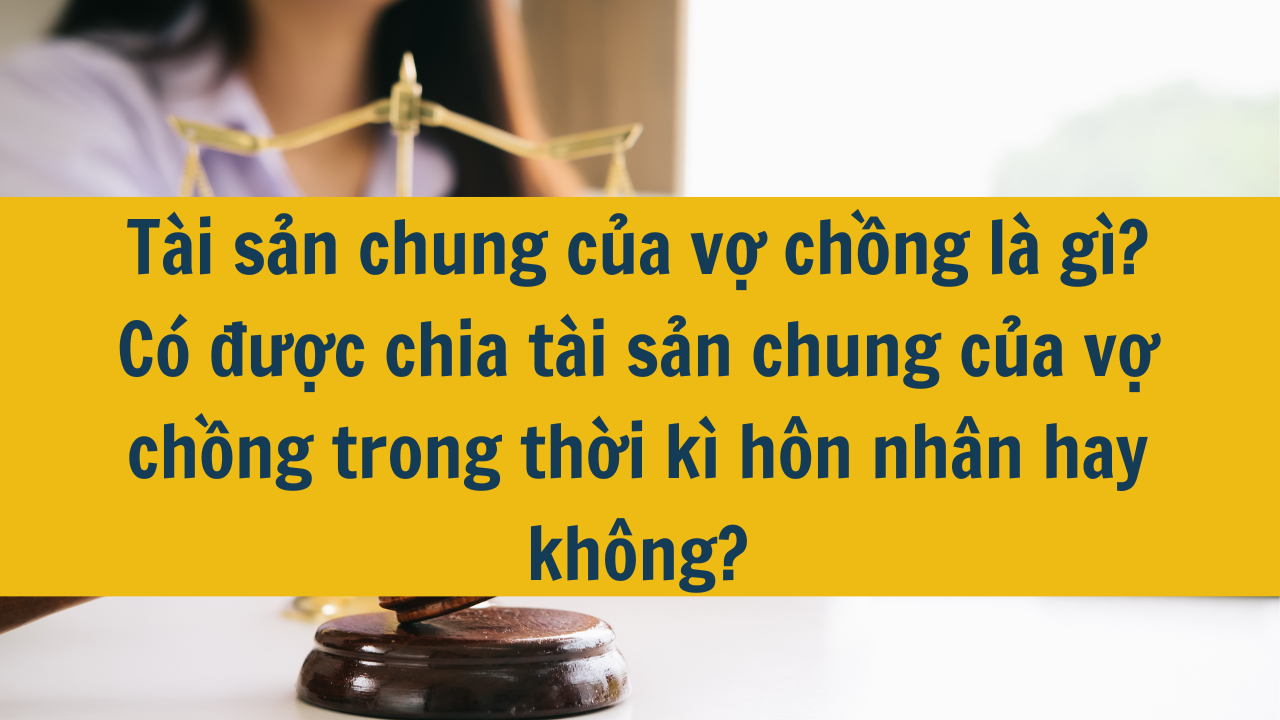

 Bộ luật Dân sự 2005 (Bản Word)
Bộ luật Dân sự 2005 (Bản Word)